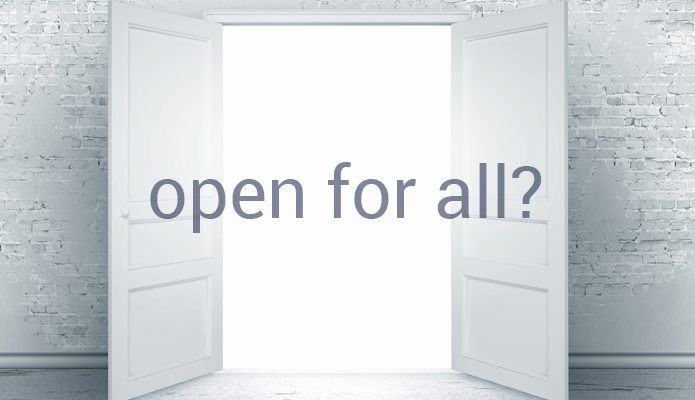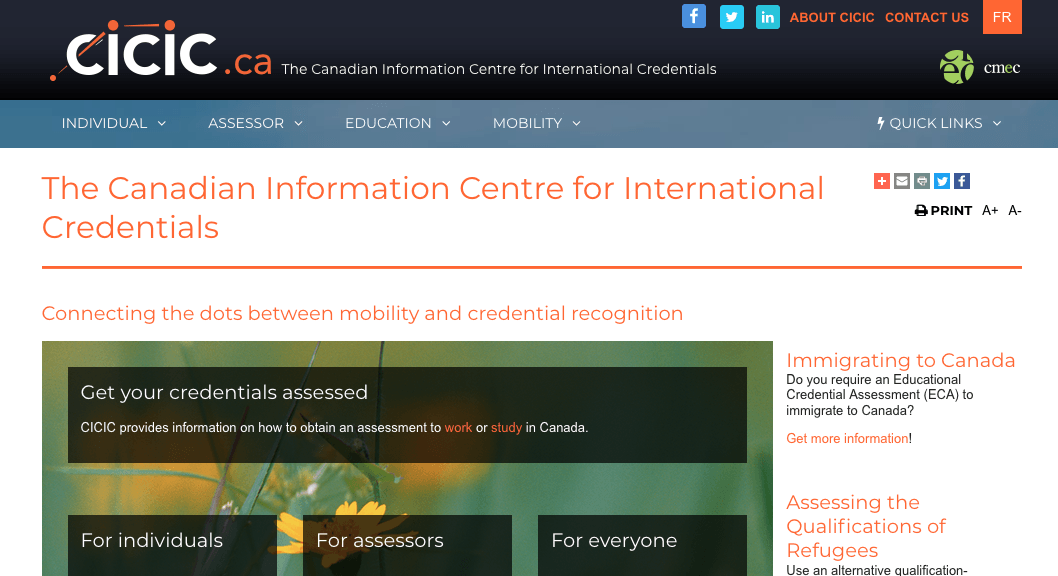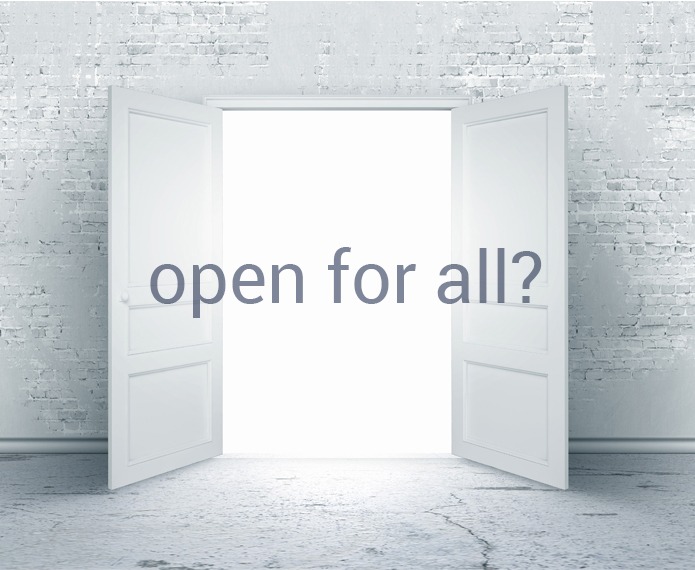The thinking of Comrade F. Dobler from the early 20th century remains relevant and even prescient: those who need open access to information may be those who are fundamentally excluded from public libraries.

Is librarianship a profession?
Open for all? offers a “think piece” rather than an intellectual analysis. Columnist John Pateman shares his personal observations on issues, and his columns are designed to promote discussion and professional debate. He has arrived at his conclusions after 40 years of working in public libraries of/in all types and locations.
Questioning the occupational status of librarianship may seem like a heretical question. After all, we require that librarians have a terminal graduate degree and so, like doctors, lawyers, social workers and other recognized professions, librarians must have advanced credentials in order to work in the field. But is this enough to qualify our work as professional in the big “P” sense of the word. I am not so sure, particularly as I think we need library workers with community development skills if we are going to be able to support our diverse communities.
A few years ago, I presented a session at the Ontario Library Association Super Conference called “Why do library workers not have the skills to meet community needs?’” The simple answer to this very big question is “because they are library workers.” In other words, they are trained in all the aspects of providing library services. However, they do not have the key skills that are required to identify, prioritize and meet community needs. These days, we need a different kind of library worker, one that has a skill set which combines traditional library skills with the ability to build sustained relationships with the community. I call this new hybrid model of library-based worker the community development worker. In this position description, there would be a 20% focus on library skills and an 80% focus on community development. This new skills set would include:
- communication skills such as listening skills
- influencing relationships
- reflective practice
- improved confidence and assertiveness
- negotiation skills
- dealing with conflict
- intercultural competence.
My session at OLA drew a large audience, and was one of the best attended that year. I suspect that this was, in part, because of the deliberately provocative title. Many of the questions that I received in the Q&A after my presentation were quite hostile. The librarians in the room clearly felt under attack and needed to defend themselves. The written feedback on my session was even more vitriolic as people could make their comments behind a mask of anonymity. I had clearly scratched a raw spot. So let me scratch a little deeper.

As a Fellow of the British Library Association (now known as the Chartered Institute of Library and Information Professionals), I feel comfortable in posing the heretical question: Is librarianship a profession? I will tackle this question from two angles. The first will take off from where my OLA presentation ended and asks, “Does a masters degree in the field of library and information science (MLIS) fully equip librarians for working in a modern day public library, where community needs and demands are constantly shifting and changing? “In such a dynamic environment what is more important: an MLIS qualification or lived experience?” The real point, of course, is that everyone has a lived experience, but relatively few can gain qualifications. The education system (in both Canada and the U.K.) is not a level playing field. If you are white and middle class, educational doors are open wide to you. If you are Indigenous, for example, your experience is a different story. So, given this imbalance, and in a context where a public library is serving a large Indigenous community, would it be more relevant to hire a librarian who has lived experience of the Indigenous community, or to hire a white middle class librarian who has an MLIS? The answer I hear most often from librarians is, “You cannot be a librarian unless you have an MLIS.” And this answer takes me on to my second angle.
When I moved to Canada in 2012, my position as Chief Executive Officer and Chief Librarian at Thunder Bay Public Library required that I had both management (for the CEO role) and librarian (for the Chief Librarian piece) qualifications. Fortunately I had both—a Masters Degree in Business Administration (MBA) and a Diploma in Librarianship (the British equivalent to an MLIS).
As a couple moving to Canada from the U.K., my wife (who is a teacher) and I were interested in the equivalency of professional qualifications in the two countries and whether our qualifications were transferable from one jurisdiction to another We consulted the Canadian Information Centre for International Credentials website and when we looked up secondary school teachers we discovered that this is a “regulated occupation. (i.e., there is an exclusive right to practice and a reserved title). In other words, if you want to practice as a teacher in Canada, you need to meet the requirements of mandatory certification and regulation. When we looked up librarian, we found that the opposite rules apply. Librarian is a “non regulated occupation (including voluntary certification and regulation).” As such, anybody can practice as a librarian in Canada because you don’t need an MLIS or to belong to a professional association to be a librarian. In fact, you don’t need any qualifications at all, and there is no mandatory requirement at the provincial or federal level for Continuous Professional Development (CPD). This lack of CPD is a critical indicator that librarianship is not a profession.

So, is librarianship really a profession when it does not have to meet the same state legal requirements as do other professions such as teaching? This is an uncomfortable but necessary question to ask, particularly in public library environments that are transitioning from traditional to community-led and needs-based service models. In this context, it is perfectly feasible and desirable to hire someone without an MLIS, but with lived experience, such as an Indigenous Librarian. Progressive organisations, such as the Canadian Union of Public Employees (CUPE), recognize that public libraries should have equitable employment policies and practices. This includes a close examination of the educational requirements that are attached to each position within the public library. The questions that must be asked in every case include:
- are these qualifications creating a barrier to equal opportunity employment?
- Do they favour and give preferment to one section of the community over another?
- And, equally importantly, are these qualifications absolutely essential to the task of identifying, prioritising and meeting community needs?
In asking these questions, we open the doors to ensuring that library workers are prepared to support and contribute positively to the development of diverse, challenging and dynamic communities.
John Pateman is the CEO of the Thunder Bay Public Library.
Photo by Craig Whitehead on Unsplash.
Screen shot from the Canadian Information Centre for International Credentials: https://www.cicic.ca.
